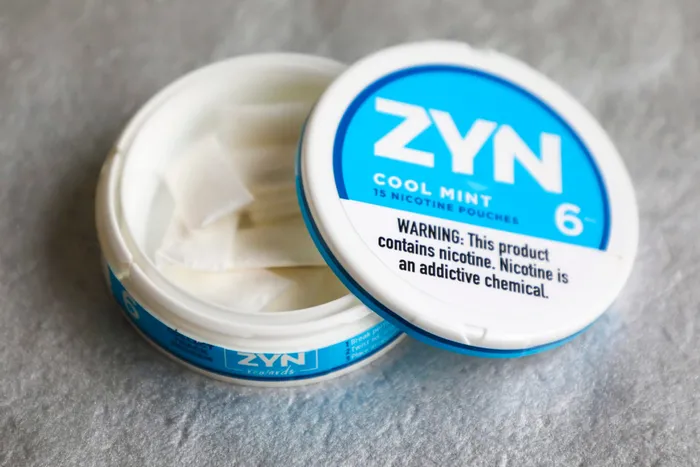Philip Morris urges SA to regulate smoke-free nicotine products separately

ZYN is made of a tea bag-like material and contains plant-based fibres and flavouring, as well as nicotine extracts, and is used by placing the pouch under the upper lip. Photo: Supplied.
Philip Morris International is moving away from combustible cigarettes and rolling out smoke-free nicotine products in South Africa, Branislav Bibic, vice president for the company’s sub-Saharan Africa region said in an interview on Friday, adding that e-cigarettes and nicotine pouches should be regulated differently as they were gaining popularity on the local market.
A global player in the tobacco cigarette industry, Philip Morris International is the producer of the popular Marlboro cigarettes brand, among others.
The company is, however, adopting new smoke-free products after launching its own new nicotine pouch product last week.
“It takes a lot of resources to educate consumers about the products and the benefit and we are doing that globally, and in South Africa we are making robust progress,” Bibic told Business Report in an interview.
“These new categories (smoke-free nicotine products) are gaining ground and are promising in terms of phasing out cigarettes for delivering nicotine.”
He added that South African consumers had caught up on the transition, a trend that had accelerated in the past three years, “with more consumers switching to different categories of smoke-free products such as e-cigarettes” and heated tobacco.
“And now we expect to accelerate nicotine pouches to the South African consumers. Our focus is to transform our business and consumer behaviour in SA from smoking harmful cigarettes to less harmful products,” he said.
Although the company was gunning to push more new category products, it was also pushing for regulation that is specific to these products in South Africa.
“Regulation is a critical element of this process. We are advocating for smoke-free products to have specific regulation, not to be covered with same blanket used for old cigarettes,” said Bibic.
Other countries such as UK, New Zealand, Greece were already adopting the differentiated regulatory approach. However, in SA, regulation specifically for smoke-free nicotine products was still lagging.
“In SA, most smoke-free products are regulated as simple consumer products and we are advocating for specific regulation of smoke-free products; there should be a specific regulation which substantiates the benefits, the taxes and prevention of underage use of the products in a differentiated way,” explained Bibic.
Despite this, Philip Morris International has set its eyes on expanding into more African countries, although the company would not disclose the targeted countries.
The company aims to earn two-thirds of its net revenue from smoke-free products by 2030, initially pivoting on expanding its portfolio of better alternatives to cigarettes in South Africa
Jonathan Kwak, director for smoke-free products at Philip Morris South Africa, described the nicotine pouch as a slim product made of a teabag-like material and containing plant-based fibres and flavouring, as well as nicotine extracts that are consumed orally by placing the pouch under the upper lip.
“They are a fast-growing, better way to enjoy nicotine compared to continued smoking. Designed in the Nordics, ZYN is now accelerating the delivery of a smoke-free future in markets like America and Sweden,” said Kwak.
BUSINESS REPORT